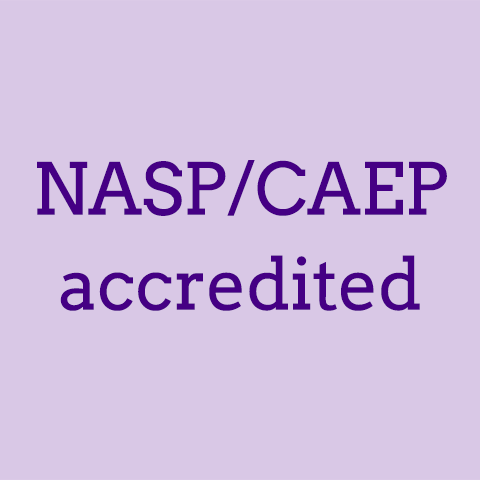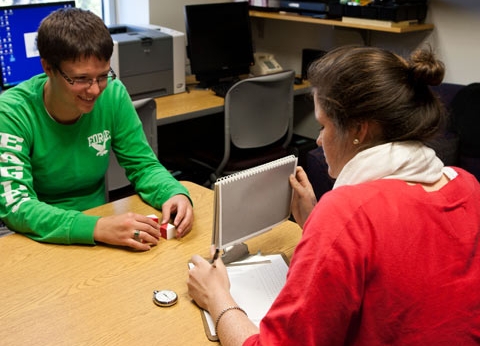Program Overview
Degrees Offered
- Master of Arts (M.A.) in School Psychology
- Educational Specialist (Ed.S.) in School Psychology and Counselor Education with a concentration in School Psychology
As a school psychologist, you can be the facilitator of human potential.
Quick Facts
Mode of Delivery
On Campus
Full-time
Typical Duration
3 years (2 on campus, 1 on internship)

Description
The school psychology program at James Madison University is fully accredited by the National Association of School Psychologists (NASP). The program emphasizes the role of the culturally competent school psychologist as that of a facilitator of an individual's overall well-being and potential. Within an integrated theoretical framework, students are prepared to be culturally competent, interpersonally skilled, data-oriented problem solvers. Central to the program focus is the understanding of children within a systems context, including the family, the school and the socio-cultural environment. Students are prepared in assessment for intervention, prevention, and promotion of well being, counseling, educational and mental health consultation, behavioral and cognitive interventions, and applied research. They are prepared to be applied child and adolescent psychologists in diverse educational and mental health settings.
The program, housed within the Department of Graduate Psychology, which resides within the College of Health and Behavioral Studies (CHBS), expects students to have a commitment to academic excellence, personal growth, professional responsibility, sensitivity to and understanding of human diversity, and effective interpersonal relationships.
A Master of Arts (M.A.) degree in School Psychology is awarded at the completion of Level I of the program and a comprehensive examination. An Educational Specialist (Ed.S.) degree in School Psychology and Counselor Education with a concentration in school psychology is awarded at the completion of Level II of the program.






